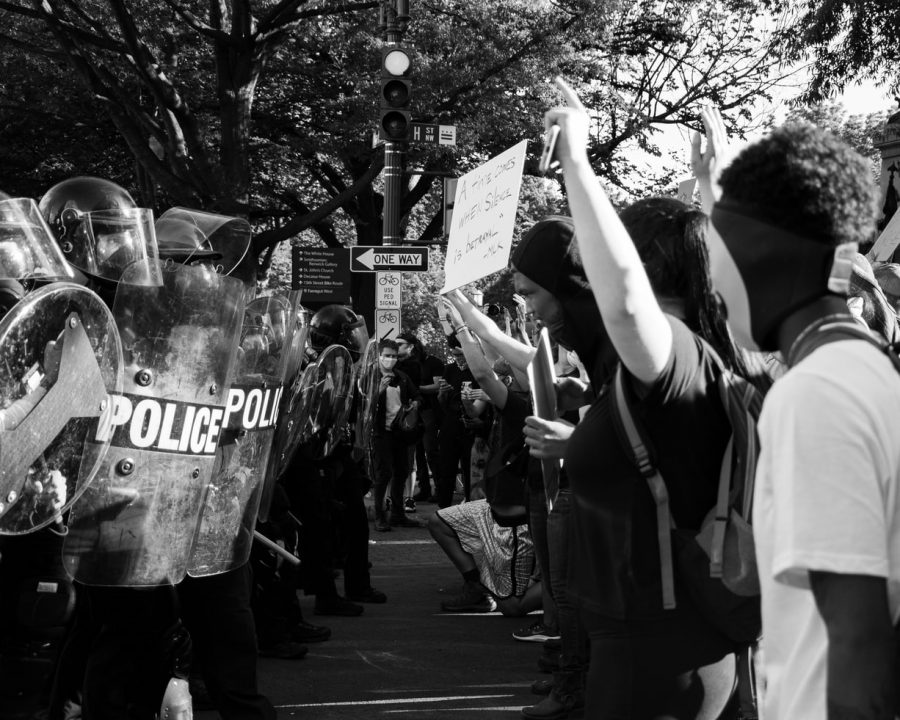That’s Fake News! Disinformation on Social Media
February 2, 2021
Message from student journalist:
As a note, I wrote this story in October 2020 before the insurrection of the Capitol on January 6, 2021 occurred. I truly believe this event shows the true dangers of misinformation.
When you log on to your social media platform, it is possible that you are flooded with posts and stories that spread awareness and call for action. Black Lives Matter, Me Too, the feminist movement, the LGBTQ+ movements, and the pro-choice and pro-life movements are just a few examples of the different causes that occupy our social media feeds. However, many of these posts might aim to distract from or take down these good causes to support their own biased agendas. And since social media has become a major source of news for teens (and, arguably, many people in society), one could only imagine the amount of misinformation circulating around the world.
In a time of civil unrest, it is imperative that we identify bias or racism within the news we consume, as it has the ability to alter our perspective of the world and how we behave toward one another.
The United States is in the midst of one of the largest social movements of American history, following the deaths of George Floyd, Breonna Taylor, Ahmaud Arbery, and many others who died in the hands of police brutality. The Black Lives Matter movement arose in 2013 as an effort to spread awareness of racism and police brutality and provide justice for Black people and minorities after the acquittal of George Zimmerman, who shot and killed unarmed 17-year-old Trayvon Martin.
Throughout 2020, racist phrases such as “White Lives Matter” have emerged in response to the momentum the Black Lives Matter movement gained in the summer of 2020. This harmful information gained a following, spreading misinformation and right-wing conspiracies. For example, in an article from USA Today published on July 5, 2020, journalist Amanda Seitz interviewed Harvard University Research Director Joan Donovan, who said “Unless Facebook is actively looking for disinformation in those spaces, [the racist accounts] will go unnoticed for a long time, and they will grow.” The ignorance of racism on social media platforms allows for the further spread of misinformation.
Posts claiming that the Black Lives Matter movement advocates for violence against white people have also appeared on social media platforms, despite being a peaceful movement that, as written on the official Black Lives Matter website, “[aims] to eradicate white supremacy and build local power to intervene in violence inflicted on Black communities by the state and vigilantes.” In response to this, the Anti-Defamation League wrote in an article that, “[this] disinformation serves to exacerbate divisions in a time of heightened racial tension and seems to be an attempt to mischaracterize the Black Lives Matter movement as a violent extremist movement.”
Essentially, some people have been spreading racist and dangerous information about the Black Lives Matter movement through social media and obscuring the true cause of this movement, spreading misinformation and inducing hatred instead.
This is just one example of disinformation and propaganda on social media. However, it is important to note that on July 14, 2020, The US Office of Special Counsel declared that “using BLM terminology is not inherently political activity and [Black Lives Matter Global Network] is not currently a partisan political group.”
Furthermore, the US Office of Special Counsel, under the guidance of the Hatch Act noted “ the Hatch Act generally allows employees to engage in BLM-related activity while on duty or in the workplace.” Since the Black Lives Matter movement is prohibited from combining BLM-related work with promoting a specific candidate by the Hatch Act, posts that aim to support a political candidate are likely propaganda.
Why is this so significant? Well, these posts supporting white supremacy and other racist ideas are spreading on social media, igniting racism, and encouraging bullying and harassment. Racism is still an extremely prominent and relevant issue in our society.
The best thing we can do to prevent this from happening is to double-check our sources and make sure that we obtain our news and information from a variety of sources so that we do not reside in an echo chamber.
Be careful with what information you take in and put out. One false statement could ignite a dangerous uproar of violent activity towards a peaceful cause, doing more harm than good. Moreover spreading these accusations and growing a following build upon hatred and violence only worsens the problem. Thus, before you post on your Instagram story or read off your twitter feed, ask yourself these questions:
- Does this promote hatred?
- Does this support or justify something that is clearly wrong?
- Is this source biased?
- Is the source credible?
Because, for all you know, the post you are looking at, or even worse, the post you share, could be fake news.
The views expressed in this article are those of the student journalist who wrote this article and are not a reflection of the views, values, beliefs, or opinions of Rancho Cucamonga High School, its staff, or its students.


